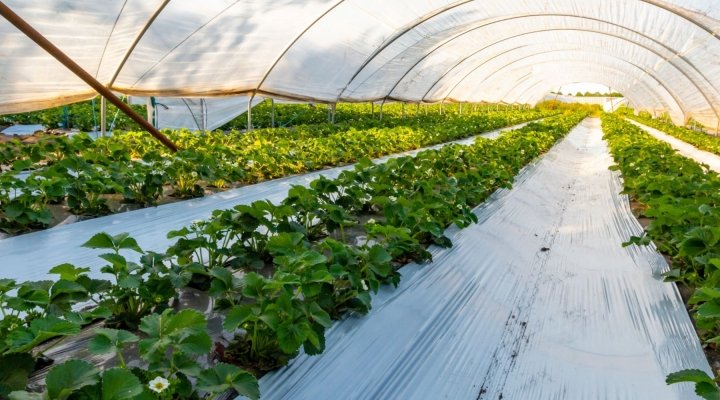Prof. Philip Demokritou, a lead researcher, voiced concerns about release of toxic additives and minuscule plastic fragments, known as micro-nanoplastics, into water, soil, and air.

A recent study conducted by Rutgers University has raised a red flag regarding the extensive utilization of plastics in agriculture and the potential risks it poses to both the environment and human well-being. Published in the journal Nature Communications, the study underscores the pressing need to curtail plastic usage in agricultural practices.
A Looming Issue
Professor Philip Demokritou, a lead researcher, voiced concerns about the release of toxic additives and minuscule plastic fragments, known as micro-nanoplastics, into water, soil, and air.
He emphasized their adverse effects on human health, highlighting that petroleum-based plastics are non-biodegradable and persist in the environment. Residues accumulate in the soil and can be absorbed by plants, entering the food chain through trophic transfer.
The Intrinsic Role of Plastics
Acknowledging the indispensable role of plastics in modern agriculture is imperative. They serve a multitude of functions, from acting as mulch films and nets to serving as storage containers. Their contribution to food production, weed and pest control, soil moisture conservation, temperature regulation, and enhancing nutrient absorption and plant growth cannot be overstated.
A Chain Reaction of Consequences
However, this widespread application has its drawbacks, resulting in substantial waste and triggering a cascade of consequences. These repercussions have profound impacts on human and environmental health, some of which are not fully comprehended.
Of particular concern is the sheer number of chemicals involved in plastic production. Professor Demokritou pointed out that over 10,000 chemicals are employed for this purpose, with many having been banned due to their hazardous implications for health and the environment.
Advocating for Safer Alternatives
The researchers strongly advocate for the adoption of environmentally-friendly additives to mitigate toxicity. For a genuinely sustainable transition, Professor Demokritou emphasized that these materials should not only be safe but also entail full transparency regarding the chemicals used in their manufacturing.
Strategies to Reduce Plastic Impact in Agriculture
The researchers propose a multi-faceted approach to address this issue. They recommend a combination of responsible usage, efficient collection, reuse, and the promotion of innovative recycling methods to mitigate the fallout from agricultural plastic usage.
In cases where these solutions are not viable, the researchers advocate for the adoption of “biodegradable and nontoxic bioplastics” as an alternative to petroleum-based plastics, ensuring complete biodegradation and eliminating persistent pollution threats.
A Call for Comprehensive Sustainability
The study authors stress the importance of integrating sustainable innovation with social processes. Considerations such as farmer behavior, materials availability, production practices, and existing constraints must all factor into the equation to truly make a difference.
Professor Demokritou concluded, “To achieve a higher level of sustainability in the use of plastics in plant agriculture, it will be crucial to make informed decisions based on scientific knowledge and grounded in the principles of a circular economy. This involves fostering innovations in material design, improving the collectability of plastics after use, promoting their reuse and recycling, and implementing shifts in usage practices.”
In a continued endeavor to shed light on this issue, Demokritou’s team has secured funding from the United States Department of Agriculture. Their objective is to assess the far-reaching impact of micro-nanoplastics on both plants and human health.